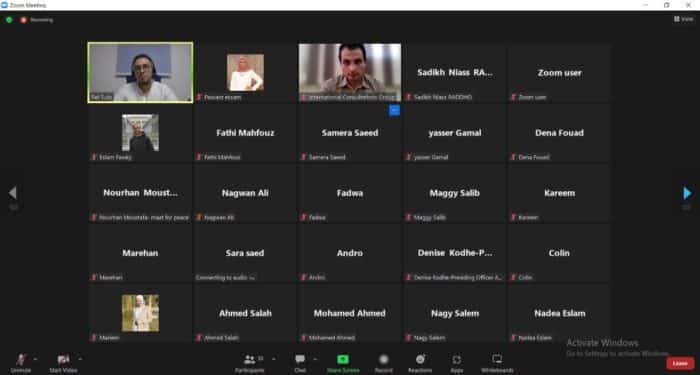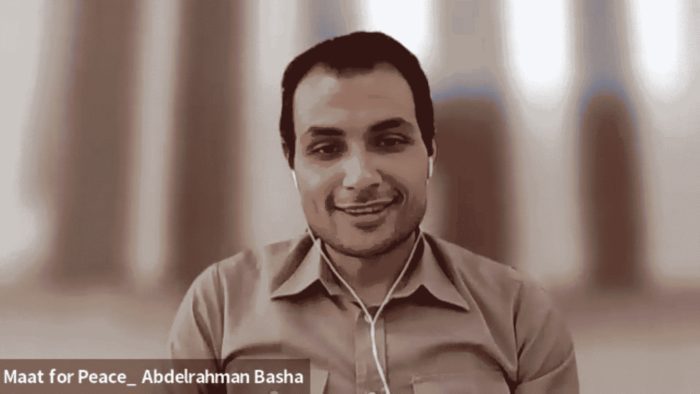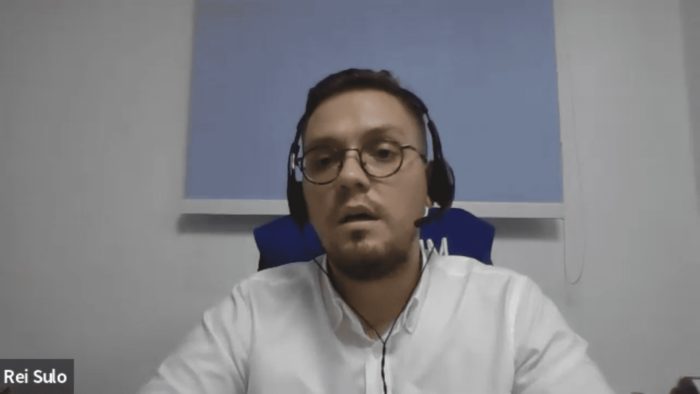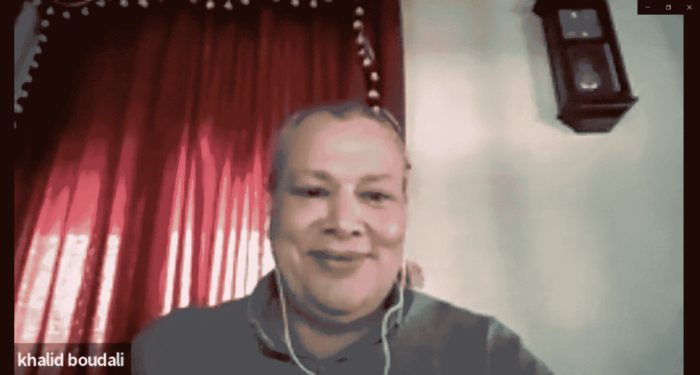Sulo: IOM looks forward to more international solidarity to protect migrants
Kodhe: African ECOSOCC plays an important role in promoting the sustainable development of migrants
Boudali: We recommend host countries to include migrants in their national programs, both socially and economically
Moulay: Civil society should cooperate with governments to provide the basic rights of migrants
Niass: We call for the support of civil society to find solutions to the issue of migration and the problems arising from it in Africa
On the sidelines of the high-level political forum, Maat for Peace, Development and Human Rights organized a side event, entitled “Development rights of migrants in hotbeds of tension: Africa and the Middle East as a case study.” The event addressed Africa’s migrants right to development rights since the spread of the Covid-19 pandemic so far, the challenges of promoting SDGs 4 and 5 for migrants in the countries of the Middle East and Africa, as well as the role of the HLPF in promoting migrants right to development.
This event was moderated by Abdelahman Basha, director of the Sustainable Development Unit at Maat, who highlighted the situation of migrants in the Middle East and Africa and discussed their suffering from various challenges that are related to the full enjoyment of human rights principles in general, and the development rights in particular, and stressed the principle of “leaving no one behind”, upon which the 2030 Agenda for Sustainable Development is based, has not yet been achieved for migrants.
During the event, Ray Sulo, representative of the International Organization for Migration, noted that the Middle East and Africa are among the regions most affected by the Coronavirus pandemic, which had a severe impact on migrants whose suffering has increased due to discrimination and inaccessible formal education. Migrant women also face challenges related to domestic violence and declining gender equality. Solo recommended the need to unite in order to achieve goals 4 and 5 of the sustainable development goals, and to achieve international solidarity for the protection of different groups.
Dennis Kodhe, presiding officer of th African Union ECOSOCC explained the ECOSOCC's role in achieving sustainable development for migrants, and highlighted the role of civil society and the shared responsibility of African organizations, stressing the need to pay more attention to the file of African development of migrants by different stakeholders and to unify African perspectives in order to move forward in achieving progress for migrants in Africa.
On his part, Khalid Boudali, Deputy presiding officer of the AU ECOSOCC, touched upon the international laws related to migrants, the Global Agreement on Migration, as well as the economic situation of migrants in host countries, and pointed out the need to view migrants positively and realize their impact on positive sustainable development in host societies, stressing the relationship between irregular migration and Increased crime rates. Boudali recommended that host countries should include migrants in their national programs on the social and economic side.
Naji Moulay Lahcen, the executive director of the network of the independent commission for human rights in north Africa, explained the suffering of African migrants in light of the low humanitarian conditions, stressing that North African migrant suffer from the phenomenon of human trafficking and smuggling of migrants. The human rights expert stressed that the lack of databases on all migrants in Africa represents a major challenge in identifying their problems. Moulay also recommended civil society organizations to cooperate with governments to provide the basic rights and needs of migrants and to eliminate discrimination and marginalization.
Finally, Sadeq Niass, president of the African Meeting for the Defense of Human Rights (RADDHO), concluded that conflicts and wars in Africa have profoundly affected young people, and triggered them to migrate as a result of their lack of access to jobs in their countries of origin. Nias dealt with the issue of human trafficking that resulted from the phenomenon of irregular migration and the resulting seriousness. He also stressed the key role played by the Special Rapporteur on Migrants and the Working Group on Torture in the African Commission, and called for the support of civil society to find solutions to the issue of migration and the problems arising from it in Africa.
It is worth noting that Maat for Peace, Development and Human Rights is currently participating in the high-level political forum, which will be held from 5 to 15 July.
shortlink: https://maatpeace.org/en/?p=35710
















